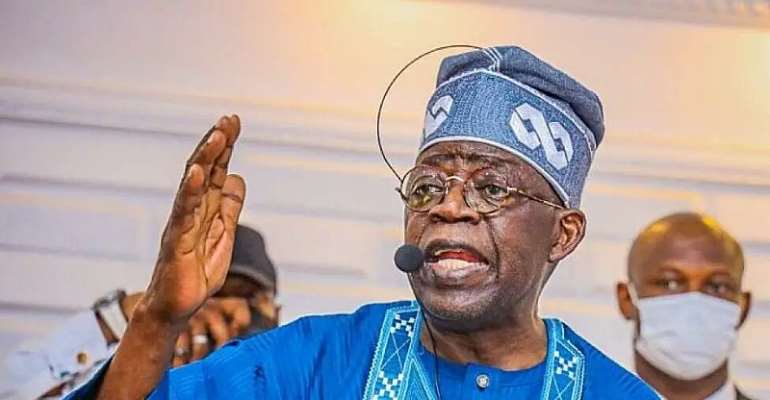Why Tinubu Should Sanitize Nigeria’s Electoral System In His Ongoing Cleansing Of The Augean Stables

There is no denying the fact that since President Bola Ahmed Tinubu was inaugurated as Nigeria’s President on May 29, 2023, that whenever he speaks, the people listen. More so, particularly when the speech is aimed at addressing the issue of corruption that has remained the bane of the country. Without a doubt, corruption has remained a bane that seems intractable from one political dispensation to the other. Without a doubt, the newly elected president has unarguably hit the ground running as he has been climbing up the dais and speaking against the issue. Given the foregoing scenario, it will not be mistaken to say that so did President Muhammadu Buhari, the immediate past president demonstrated his readiness to give his best, unfortunately not a few Nigerians are saying that his best was not enough.
In fact, what the immediate past president left behind were, glaringly, broken promises. It will be recalled that his mantra, whenever he mounted the soap box, was his resolve to root out corruption. He for the umpteenth time pledged to cripple it during the 2015 electioneering with his well-known refrain: “If we don’t kill corruption, corruption will kill Nigeria.” Sadly, the epidemic became so contagious that some argue that it reached fairly overwhelming proportions.
Without a doubt, each time he spoke about corruption, he was wont to seek people’s cooperation to take on the corrupt including the big-wigs. If I may ask, “What has prevented him from doing this all through his eight years in power?”
However, it is obvious that there is light at the end of the tunnel as President Tinubu is already fighting to nip corruption in the bud just as he promised during his campaign, and has reiteratively assured Nigerians that he will fight the monster called corruption during his inauguration as Nigeria’s president even as he has since then put his promise into practice.
It is expedient to recall that during his campaign that he promised to fight corruption by focusing more on preventive measures if elected as president in the 2023 election, saying that part of his strategy would be putting a system for effective wealth redistribution in place, to greatly reduce the temptation to commit corruption. He particularly made the foregoing disclosure during a discussion with the Arewa Joint Committee in Kaduna in October last year.
According to him, the socio-economic challenges the country faces are deeply rooted in corruption, noting that Nigeria ranked 154th out of 180 nations assessed in the latest Transparency International’s 2021 Corruption Perception Index (CPI).
In as much as leaders have been either fighting corruption or have been victims of it for decades, and still appears as if it has been accepted as a feature of life, President seems poised as he has taken steps that show he is battle-ready for the fight against corruption. For instance, a few days ago, he suspended Mr. Godwin Emefiele as the Central Bank of Nigeria (CBN) governor, and on Wednesday night, he in the same vein suspended the Chairman of the Economic and Financial Crimes Commission (EFCC), Abdulrasheed Bawa from office. The suspension was made known through a terse statement issued by the Office of the Secretary to the Government of the Federation (SGF).
Given the body language of President Tinubu, since he literarily hit the ground running, it can be fathomed from the foregoing views that he is poised to sanitize the entire sectors of the economy. If the foregoing conjecture is factual enough, then it cannot be wrong to urge him to work with the National Assembly toward sanitizing the country’s electoral process. The reason for the foregoing call cannot be farfetched as given the inanities that characterized the last general and presidential elections, from which he paradoxically benefitted, there is an urgent need for the president, INEC, and the National Assembly to work together in ensuring that the electoral system is refined and sanitized so that the best electoral environment in Nigeria can be engendered in the country.
The reason for urging the newly sworn-in president to sanitize Nigeria’s electoral landscape is that the last general and presidential election conducted under the watchful eyes of Mahmood Yakubu, chairman of the Independent National Electoral Commission (INEC) was widely assessed to be ridden by corruption.
At this juncture, permit this writer to opine that the exigency of sanitizing INEC cannot be pooh-poohed as doing that will further deepen the fact that elections are a central feature of democracy and that for elections to express the will of the electorate, they must be ‘free and fair’.
For the sake of clarity, “Free” means that all those entitled to vote have the right to be registered and to vote and must be free to make their choice. In Nigeria, every citizen over the age of 18 is entitled to vote, and an election is considered ‘free’ when you can decide whether or not to vote and vote freely for the candidate or party of your choice without fear or intimidation. Not only that, a ‘free’ election is also one where you are confident that who you vote for remains your secret.
Furthermore, ‘Fair’ means that all registered political parties have an equal right to contest the elections, campaign for voter support, and hold meetings and rallies. This gives them a fair chance to convince voters to vote for them. A fair election is also one in which all voters have an equal opportunity to register, where all votes are counted, and where the announced results reflect the actual vote totals.
